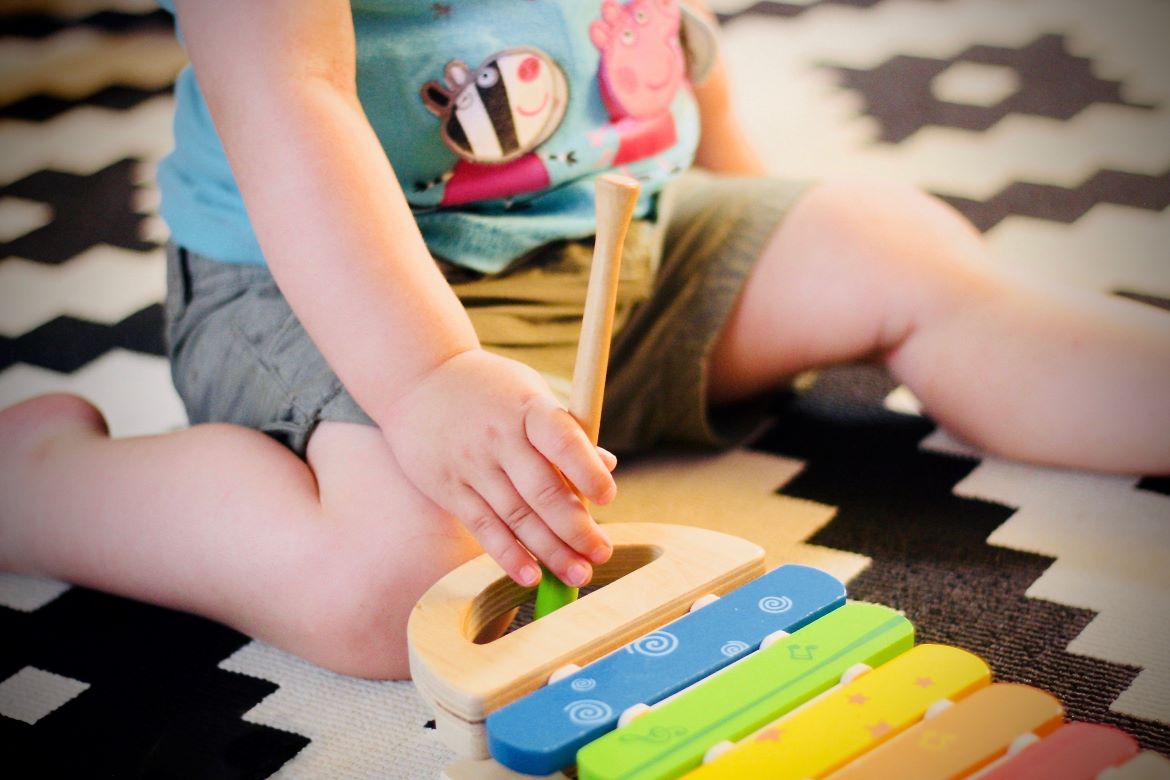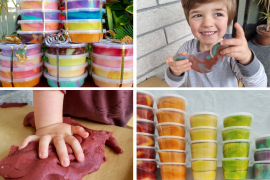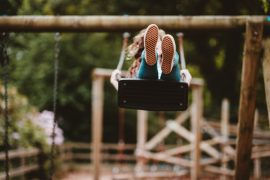By Ellie McKinsey
“Are preschoolers too young to learn music?”
To answer this question, we first need to consider what learning music means. To many, it may mean music lessons in a particular instrument, like the piano or guitar. That is true, but music learning actually encompasses what one learns via musical activities and experiences, even without formal instruction.
Children and music
Children are exposed to music as soon as they can hear.
Infants can hear their parents singing to them or talking to them in a sing-song voice, and they hear the music from a mobile above their crib.
Toddlers learn music when they hear the record player and when they play with toys that make sound.
Preschoolers learn music when they sing nursery rhymes, move their bodies with music, and play musical games with their classmates. It may not look like formal music instruction, but they are learning music nonetheless. Through different activities, young children learn about rhythm, melody, pitch and other elements of music — without really knowing what they’re called. They learn music by doing.
So no, preschoolers are not too young to learn music. They’re actually of the perfect developmental age to immerse themselves in music — soon, they’ll be ready for formal music instruction.
But there’s more to music than just learning it.
Role of music in early childhood development
In 2016, Carnegie Hall published a research paper discussing the reasons why music making is important in early childhood development. The study explains how the early childhood years, or the time from birth to age 5, is a crucial period in human development. It is the time when the bodies, brains, and abilities of children grow more rapidly than at any other time, say, during the teenage years.











